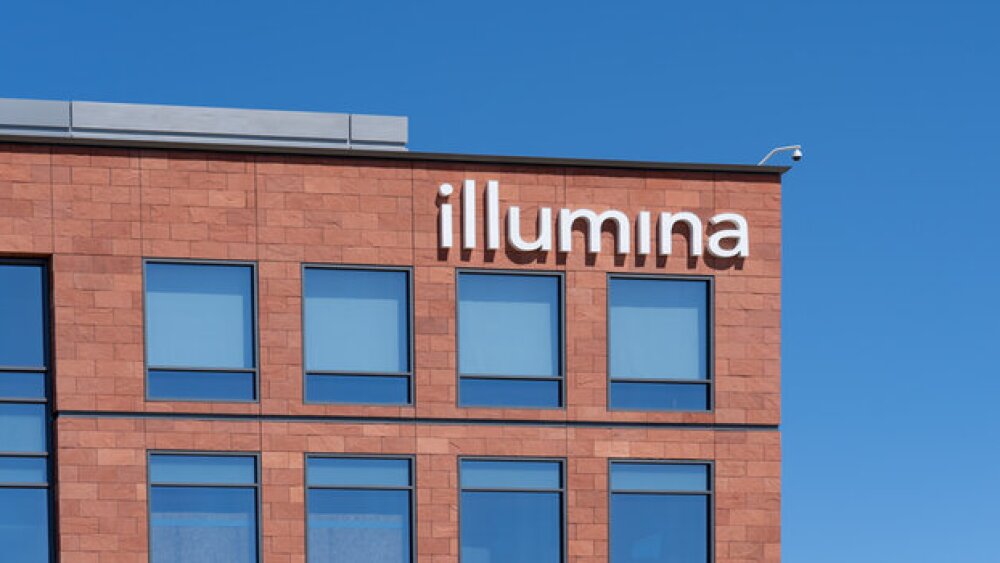Following a U.S. appeals court decision, the company said it is preparing to divest GRAIL through a third-party sale or capital markets transaction.
Pictured: Illumina’s building in San Diego/iStock, JHVEPhoto
Illumina on Sunday announced that it would divest cancer testing company GRAIL following a drawn-out antitrust battle with regulators in Europe and the U.S.
The decision to let go of GRAIL also follows a Friday decision of the U.S. Fifth Circuit Court of Appeals, which agreed with the Federal Trade Commission (FTC) that there was evidence the acquisition was anti-competitive, as reported by Reuters. Still, the court found that the FTC had applied the wrong legal standard and sent the case back to the antitrust watchdog, ordering it to reconsider its stand on the acquisition.
The FTC had filed a complaint in August 2023 claiming that the merger between Illumina and GRAIL “threatens to stifle ongoing competition in the race to develop and commercialize multi-cancer early detection” tests, and will thereby lead to higher test prices for Americans.
Illumina “has elected not to pursue further appeals of the Fifth Circuit’s decision,” the company noted in its news announcement on Sunday. The company will divest GRAIL through a third-party sale or capital markets transaction, in keeping with a divestiture order from the European Commission. Illumina and GRAIL expect to finalize the terms of the divestiture by the end of the second quarter of 2024.
Illumina first moved to buy GRAIL in September 2020, putting up $8 billion in cash and stock for the cancer screening biotech. Very quickly, regulators pushed back against the deal, flagging potential antitrust concerns. In March 2021, the FTC filed a complaint against Illumina and GRAIL, claiming that the acquisition agreement would violate key competitive regulations in the U.S.
The EU followed suit a few months later, in July 2021. However, in the middle of the investigations, Illumina and GRAIL closed the transaction, which forced the European Commission (EC) to adopt binding interim measures in October 2021, keeping the two companies separate and independent.
Almost a year later, the EC found that the deal between Illumina and GRAIL indeed violated antitrust regulations and in December 2022 ordered the two companies to “unwind the acquisition.”
In July 2023, the EC also slapped both Illumina and GRAIL with historic fines for “knowingly and intentionally” violating the standstill obligations under the Commission’s merger regulations amid an ongoing investigation. Illumina was fined $476 million for this infraction, which represents the highest sanction allowed under the EU’s rules and is the highest penalty the EC has ever given.
GRAIL was also given a “symbolic fine” of $1,100, becoming the first ever target company to be sanctioned under the merger regulations.
Tristan Manalac is an independent science writer based in Metro Manila, Philippines. He can be reached at tristan@tristanmanalac.com or tristan.manalac@biospace.com.






